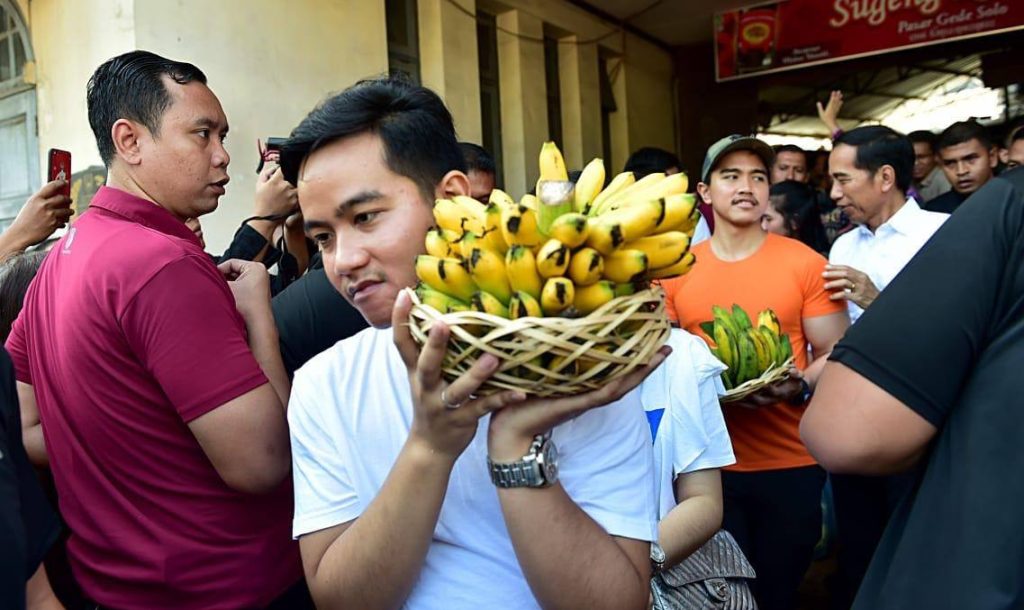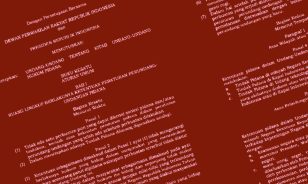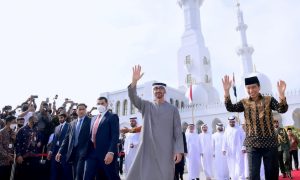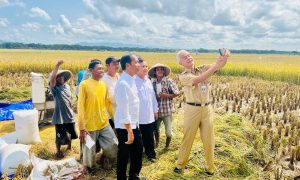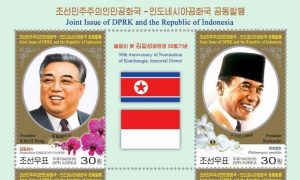The two sons of Indonesian President Joko Widodo are said to be plotting their political futures, as their father is set to go into retirement after the presidential elections in February 2024. If they do, it would only cement perceptions that Jokowi is seeking to build a political dynasty. How Jokowi’s two sons perform on the political scene will have a bearing on the legacy of the president and his family post-2024.
Gibran Rakabuming, the president’s eldest son and incumbent mayor of Surakarta (Solo), is eyeing higher political office: either the governorship of Jakarta or Central Java. Gibran’s younger brother Kaesang Pangarep is said to eyeing an initial entry into politics by campaigning for the mayorships of Depok or South Tangerang, both economically important cities within greater Jakarta. (Bobby Nasution, the president’s son-in-law, is currently the mayor of Medan, Indonesia’s fourth-largest city.)
Gibran is looking at using his high-profile position as mayor of Solo to run for a gubernatorial seat in 2024. He could be eyeing the governorship in Central Java—a job currently held by Ganjar Pranowo, the who has secured the Democratic Party of Struggle’s (PDI-P’s) nomination for the 2024 presidential election.
A second option would be for Gibran to contest for the governorship of Jakarta. If Gibran decides to run there, he would be able to build on his father’s legacy. During his tenure as governor from 2012 to 2014, Jokowi accelerated construction of the capital’s mass transportation system, enhanced its flood management system and initiated improvement programs in informal settlements.
According to the latest survey results, Gibran has the lead among potential candidates for the Central Java contest scheduled for late 2024, while there are as yet no public surveys that gauge Gibran’s prospects for the Jakarta contest.
As it stands, there are greater prospects of Gibran running in Central Java rather than Jakarta. Solo, which is part of Central Java province, has a relatively homogenous Javanese ethnic demographic and a large Christian minority. This would favour someone with Gibran’s strong Javanese and secular background, in a context where aliran-based political–cultural identities and rivalries are still influential in determining many peoples’ voting behaviour. Jakarta, meanwhile, has a more heterogenous demographic and is more complex politically—and is not the PDI-P stronghold that Central Java is. The capital, especially since the rise of Anies Baswedan in the 2017 gubernatorial election, has lately become the base of conservative Muslim voters, which would be an obstacle for Gibran.
Securing the Central Java gubernatorial seat could mean a lot for Gibran, since it could be a launchpad for the presidency, with the province being home to almost 28 million enrolled voters. If Gibran succeeds in Central Java, this would bolster PDI-P’s already strong hold on the province. Along with Bali, West Kalimantan, North Sulawesi, and some Eastern Indonesian regions, continuing a record of landslide victories in Central Java is crucial to helping the PDI-P keep up its seat count in the national and local parliaments, and helps preserve the nationalistic and pluralistic image of the party.
Indonesia’s new criminal code turns representatives into rulers
The new law isn’t the final nail in the coffin for democracy, but it’s a hammer for anyone who wants to drive one in.
Kaesang, a businessman, YouTuber and soccer club owner, would be expected to attract young voters in Depok, a satellite city in southern Jakarta. His social media postings expressing whimsical attitudes, life in the presidential family, and collaborations with content creators, stand-up comedians and celebrities have helped him to gain many followers in social media. Kaesang’s profile also fits Depok’s demographic of educated voters and young professionals. Although Depok is a part of West Java, it has always been considered as closer to Jakarta, which might encourage PDI-P to capture Depok in the local election next year.
But a run for the Depok mayorship is not without risks. Depok has been a bastion for the Prosperous Justice Party (PKS) since the first direct mayoral contest in 2005. Since then, the mayoral seat has always been occupied by a cadre from the Islamist party. PDI-P has been defeated by PKS several times when it tried to win the mayoral seat in Depok, and the two parties have maintained a political spat over PDI-P’s criticism of PKS’ governance of the city, in particular the management of fuel prices. Yet PKS has many loyal voters and party networks across the city, and PDI-P’s loss in Depok would likely reflect its uncertain prospects of winning seats in Bandung, Bogor and Bekasi, other cities in West Java home to large Muslim voter bases who share family ties or same Islamic teachings, and where PKS holds local legislative majorities.
With Kaesang’s chances in Depok uncertain, another political option is that he runs for the mayoral contest in Solo if his elder brother Gibran decides to gun for the governorship in Central Java. As President Jokowi’s family has strong approval ratings in Solo, Kaesang would be suitable to build on the legacy of his father and elder brother, especially given thatdynasticism among Solo residents remains generally acceptable and most residents are in favour of Gibran’s potential run for Central Java. Under Gibran’s tenure Solo’s infrastructure, symbolised by the Shekih Zayed Al-Nahyan mosque and a new elevated railway, has been improved. Gibran has also revitalised the city’s cultural and small enterprises centre.
Both Gibran and Kaesang are increasingly viewed as the political successors of their father. The problem here is that no one in the Jokowi family, including the president, holds a strategic position within the PDI-P party structure at the national and local levels. While PDI-P might want to capitalise on the electability of Jokowi’s sons, it would also have to contend with their potential “independence”, as is the case with the father. This might complicate the political trajectories for his sons, especially after he leaves office in October 2024. To boost their political careers in the future, both of them might be well-advised to secure a more strategic position within the party’s structure.
 Facebook
Facebook  Twitter
Twitter  Soundcloud
Soundcloud  Youtube
Youtube  Rss
Rss 